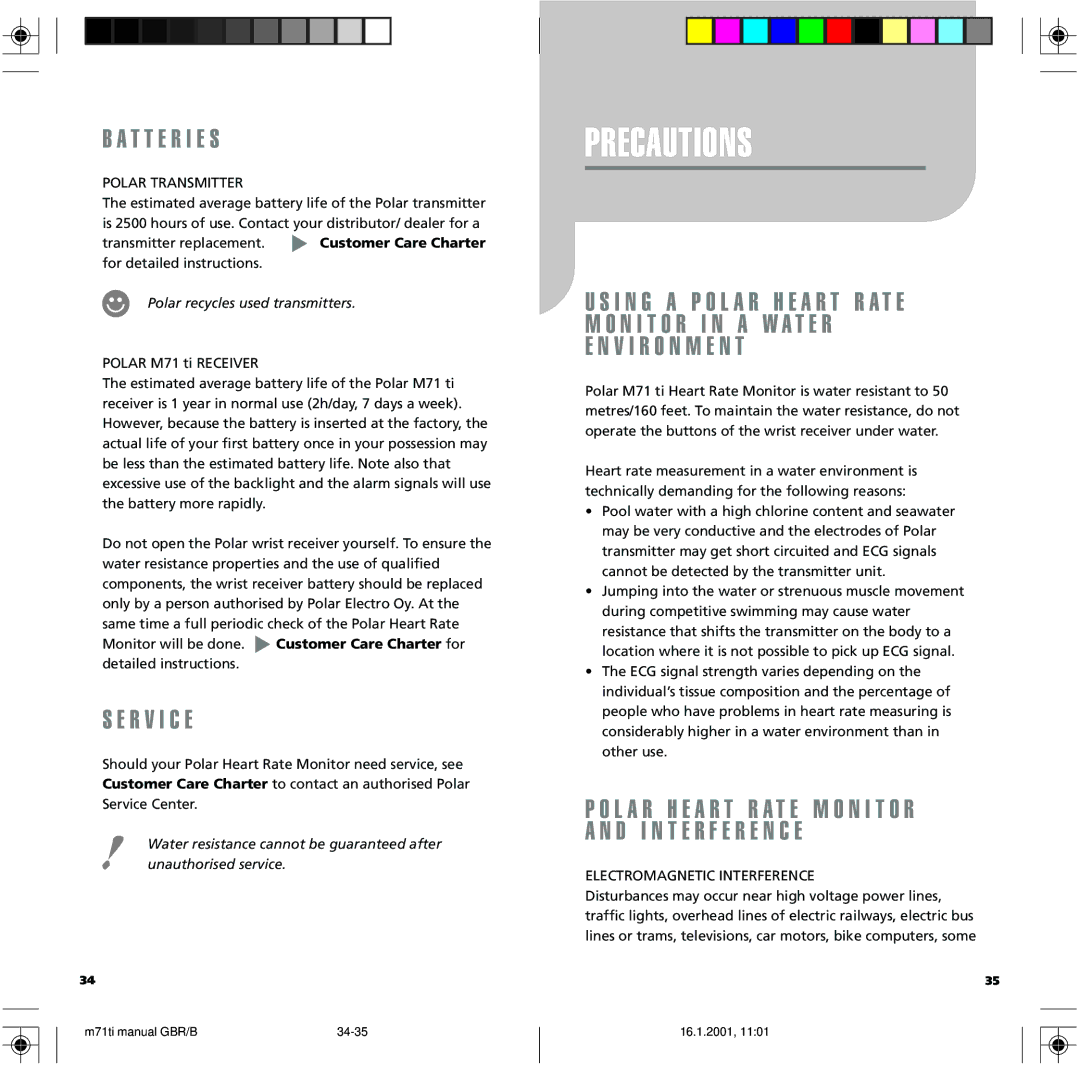
B A T T E R I E S
POLAR TRANSMITTER
The estimated average battery life of the Polar transmitter is 2500 hours of use. Contact your distributor/ dealer for a
transmitter replacement. ![]() Customer Care Charter for detailed instructions.
Customer Care Charter for detailed instructions.
Polar recycles used transmitters.
POLAR M71 ti RECEIVER
The estimated average battery life of the Polar M71 ti receiver is 1 year in normal use (2h/day, 7 days a week). However, because the battery is inserted at the factory, the actual life of your first battery once in your possession may be less than the estimated battery life. Note also that excessive use of the backlight and the alarm signals will use the battery more rapidly.
Do not open the Polar wrist receiver yourself. To ensure the water resistance properties and the use of qualified components, the wrist receiver battery should be replaced only by a person authorised by Polar Electro Oy. At the same time a full periodic check of the Polar Heart Rate Monitor will be done. ![]() Customer Care Charter for detailed instructions.
Customer Care Charter for detailed instructions.
S E R V I C E
Should your Polar Heart Rate Monitor need service, see Customer Care Charter to contact an authorised Polar Service Center.
Water resistance cannot be guaranteed after unauthorised service.
34
PRECAUTIONS
U S I N G A P O L A R H E A R T R A T E M O N I T O R I N A W A T E R
E N V I R O N M E N T
Polar M71 ti Heart Rate Monitor is water resistant to 50 metres/160 feet. To maintain the water resistance, do not operate the buttons of the wrist receiver under water.
Heart rate measurement in a water environment is technically demanding for the following reasons:
•Pool water with a high chlorine content and seawater may be very conductive and the electrodes of Polar transmitter may get short circuited and ECG signals cannot be detected by the transmitter unit.
•Jumping into the water or strenuous muscle movement during competitive swimming may cause water resistance that shifts the transmitter on the body to a location where it is not possible to pick up ECG signal.
•The ECG signal strength varies depending on the individual’s tissue composition and the percentage of people who have problems in heart rate measuring is considerably higher in a water environment than in other use.
P O L A R H E A R T R A T E M O N I T O R A N D I N T E R F E R E N C E
ELECTROMAGNETIC INTERFERENCE
Disturbances may occur near high voltage power lines, traffic lights, overhead lines of electric railways, electric bus lines or trams, televisions, car motors, bike computers, some
35
m71ti manual GBR/B |
16.1.2001, 11:01
